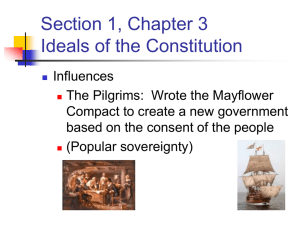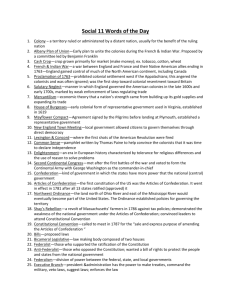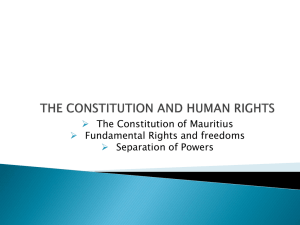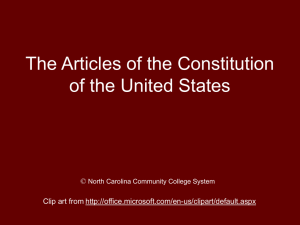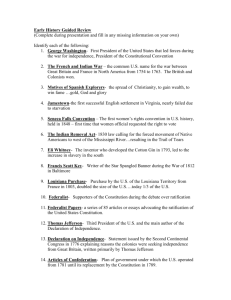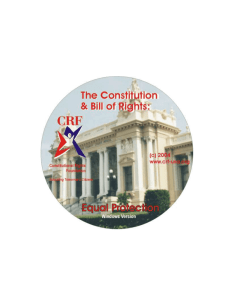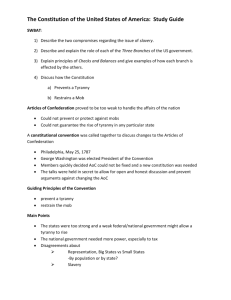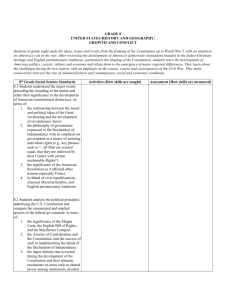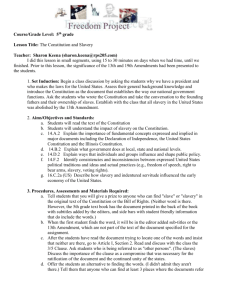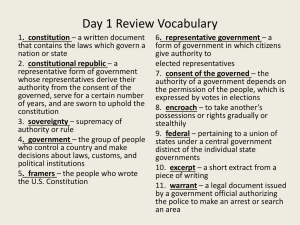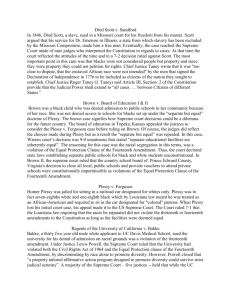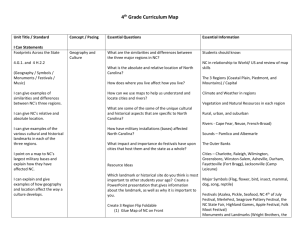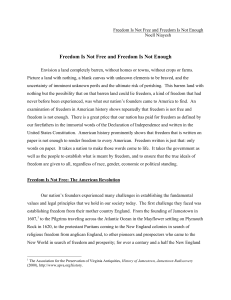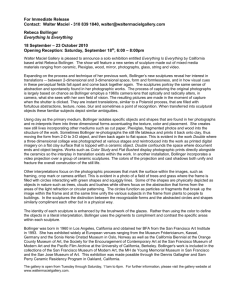Race, Gender and the Constitution
advertisement
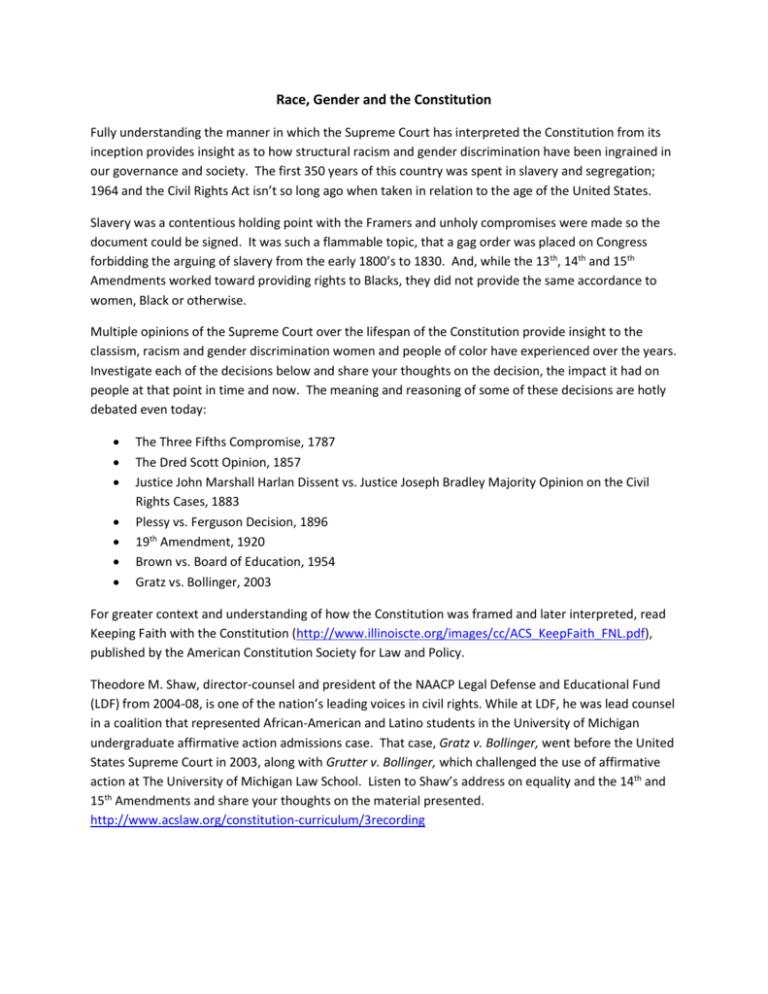
Race, Gender and the Constitution Fully understanding the manner in which the Supreme Court has interpreted the Constitution from its inception provides insight as to how structural racism and gender discrimination have been ingrained in our governance and society. The first 350 years of this country was spent in slavery and segregation; 1964 and the Civil Rights Act isn’t so long ago when taken in relation to the age of the United States. Slavery was a contentious holding point with the Framers and unholy compromises were made so the document could be signed. It was such a flammable topic, that a gag order was placed on Congress forbidding the arguing of slavery from the early 1800’s to 1830. And, while the 13th, 14th and 15th Amendments worked toward providing rights to Blacks, they did not provide the same accordance to women, Black or otherwise. Multiple opinions of the Supreme Court over the lifespan of the Constitution provide insight to the classism, racism and gender discrimination women and people of color have experienced over the years. Investigate each of the decisions below and share your thoughts on the decision, the impact it had on people at that point in time and now. The meaning and reasoning of some of these decisions are hotly debated even today: The Three Fifths Compromise, 1787 The Dred Scott Opinion, 1857 Justice John Marshall Harlan Dissent vs. Justice Joseph Bradley Majority Opinion on the Civil Rights Cases, 1883 Plessy vs. Ferguson Decision, 1896 19th Amendment, 1920 Brown vs. Board of Education, 1954 Gratz vs. Bollinger, 2003 For greater context and understanding of how the Constitution was framed and later interpreted, read Keeping Faith with the Constitution (http://www.illinoiscte.org/images/cc/ACS_KeepFaith_FNL.pdf), published by the American Constitution Society for Law and Policy. Theodore M. Shaw, director-counsel and president of the NAACP Legal Defense and Educational Fund (LDF) from 2004-08, is one of the nation’s leading voices in civil rights. While at LDF, he was lead counsel in a coalition that represented African-American and Latino students in the University of Michigan undergraduate affirmative action admissions case. That case, Gratz v. Bollinger, went before the United States Supreme Court in 2003, along with Grutter v. Bollinger, which challenged the use of affirmative action at The University of Michigan Law School. Listen to Shaw’s address on equality and the 14th and 15th Amendments and share your thoughts on the material presented. http://www.acslaw.org/constitution-curriculum/3recording


